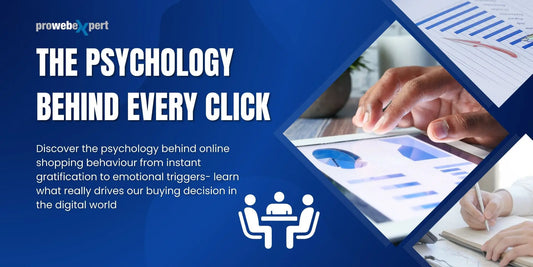
Best E-commerce Platforms in 2025: Which One is Right for You?
Share
The e-commerce sector has experienced incredible growth over the last ten years, becoming an essential part of the global economy. As an increasing number of companies transition to online operations, selecting the appropriate e-commerce platform has emerged as a critical choice for both entrepreneurs and businesses. Partnering with an Ecommerce Store Development Company can streamline this process and ensure a seamless setup. In this article, we will explore what e-commerce entails, its importance today, key considerations for choosing an e-commerce platform, and a comprehensive comparison of the leading e-commerce platforms for 2025. Lastly, we’ll offer suggestions to assist you in finding the ideal platform tailored to your business type.
What is E-Commerce and How Does It Work?
E-commerce, also known as electronic commerce, pertains to the online transaction of goods and services. It includes a variety of business models, such as B2C (Business-to-Consumer), B2B (Business-to-Business), C2C (Consumer-to-Consumer), and D2C (Direct-to-Consumer). The fundamental steps involved are:
Establishing an Online Store: Companies create an online storefront utilizing an e-commerce platform.
Listing Products or Services: The store showcases products or services, complete with descriptions, images, and pricing information.
Engaging with Customers: Customers navigate the website, select items for their cart, and finalize their purchases.
Processing Payments: Secure payment gateways handle the transaction processes.
Fulfilling Orders: Companies are responsible for shipping products or providing services to customers.
The ease, availability, and ability to grow that e-commerce provides have turned it into a crucial component of contemporary business plans.
Why is E-Commerce So Important Nowadays?
Global Presence: E-commerce enables companies to connect with customers across different geographical locations.
Cost Efficiency: It lowers operational expenses in comparison to traditional brick-and-mortar stores.
Customer Convenience: Shoppers can make purchases at any time and from any location, which makes e-commerce very attractive.
Insightful Data: Companies can gather and analyze consumer data to refine marketing tactics and improve user experience.
Flexibility: E-commerce platforms allow businesses to swiftly adjust to evolving market demands.
Fact: According to Statista, global e-commerce sales are projected to surpass $8.1 trillion by 2026, showing how essential it has become for businesses worldwide.
What to Consider Before Choosing an E-Commerce Platform
Before choosing an e-commerce platform, assess these factors to guarantee it meets your business requirements:
Business Size and Type: Are you operating as a small startup, a mid-sized company, or a large organization?
Budget: Think about initial costs, monthly subscription fees, and extra expenses like plugins or applications.
Ease of Use: The platform needs to be easy to navigate for both you and your customers.
Customization Choices: Make sure the platform gives you the ability to design and tailor your store to align with your brand, especially with options like Shopify Custom Product Solutions.
Growth Potential: Select a platform that can expand alongside your business.
Capabilities and Resources: Seek out integrated features such as SEO, analytics, payment options, and integrations.
Support for Customers: Dependable customer support is essential for addressing any technical problems.
Best E-Commerce Platforms in 2025
Here is a list of the top e-commerce platforms in 2025, along with their features, pros, and cons:
1. Shopify
Features:
Intuitive drag-and-drop store builder.
Access to more than 6,000 applications in the Shopify App Store.
Capability for multi-channel selling, including social media and marketplaces.
Mobile-responsive design templates.
Built-in payment processing through Shopify Payments.
Pros:
Highly user-friendly interface.
Extensive selection of themes and plugins.
Exceptional scalability suitable for expanding businesses.
Robust customer support services.
Cons:
Monthly subscription costs may be considerable.
Limited customization options available without coding expertise.
Fact: Shopify powers over 4.4 million e-commerce websites worldwide and remains a top choice for businesses investing in Shopify Store Development.
2. WooCommerce
Features:
Open-source and adaptable.
Integrates effortlessly with WordPress.
Extensive collection of plugins and extensions.
Variety of payment gateway choices.
Pros:
No cost for basic use (with optional paid add-ons).
Well-suited for content-focused websites.
Extensively customizable.
Cons:
Demands a certain level of technical expertise.
Hosting and maintenance expenses may accumulate.
3. BigCommerce
Features:
Integrated SEO and marketing functionalities.
No transaction fees.
Ability to manage multi-currency transactions.
Comprehensive analytics and reporting capabilities.
Pros:
Outstanding scalability.
Strong performance for extensive product catalogs.
Well-suited for B2B and wholesale enterprises.
Cons:
Restricted selection of free themes.
May present challenges for novice users.
4. Wix eCommerce
Features:
User-friendly drag-and-drop website creation tool.
A variety of pre-designed templates are available.
Integrated SEO functionalities.
Support for selling across multiple channels.
Pros:
Well-suited for small enterprises and novices.
Cost-effective pricing options.
Simple to navigate and utilize.
Cons:
Scalability is restricted for larger enterprises.
Customization features are somewhat basic.
5. Magento (Adobe Commerce)
Features:
Highly adaptable and versatile.
Sophisticated SEO and marketing capabilities.
Ideal for large organizations.
Facilitates multiple languages and currencies.
Pros:
Open-source edition accessible.
Remarkably robust and scalable.
Cons:
Significant learning curve.
Expensive hosting and maintenance costs.
6. Squarespace Commerce
Features:
Aesthetic and visually appealing templates.
Integrated marketing and analytics functionalities.
Optimization for mobile devices.
Options for subscription-based sales.
Pros:
Ideal for creative professionals and businesses with a design emphasis.
User-friendly and straightforward interface.
Cons:
Restricted choices for payment gateways.
Not suitable for extensive product inventories.
Which Platform is Right for You? (Recommendations Based on Business Type)
Small Businesses and Startups: Shopify, Wix eCommerce
Content-Driven Websites: WooCommerce
Large Enterprises: Magento (Adobe Commerce), BigCommerce
Design-Focused Businesses: Squarespace Commerce
B2B or Wholesale Businesses: BigCommerce
Conclusion
Selecting the appropriate e-commerce platform is influenced by your business objectives, scale, and financial resources. While Shopify is recognized as a flexible option for a wide range of businesses, alternatives such as WooCommerce, BigCommerce, and Magento serve more specialized purposes. It's important to carefully assess your needs and experiment with various platforms prior to reaching a conclusive decision. Dedicating time to the right platform will place your e-commerce venture on a successful trajectory for 2025 and the years to follow.
If you require professional assistance in choosing and configuring the ideal e-commerce platform for your business, Prowebexpert is ready to assist you. Reach out to us today to embark on your e-commerce journey!




